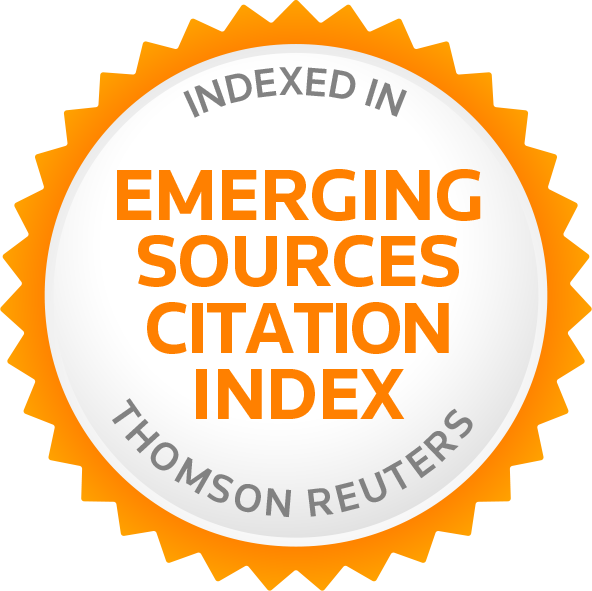The Role of the University in Developing Digital Competencies and Reducing Skills Mismatch from a Human Capital Perspective for the 21st Century
DOI:
https://doi.org/10.59471/debate2024172Keywords:
higher education, human capital, digital competencies, skills mismatch, artificial intelligence, lifelong learningAbstract
This work analyzes the role of the university and its necessary evolution and intervention to address the challenge of skills mismatch, collaborating to reduce this gap in the 21st century labor market that manifests itself through both underqualification and overqualification.
Based on a review of the literature on human capital theory and digital skills, it proposes how the University plays an essential role in developing digital skills within the framework of human capital theory and digital competencies, at an inflection point produced by the end of the pandemic and the learnings and necessary adaptations it has left us in terms of evaluating distance education, added to the emergence and continuous growth of artificial intelligence in teaching and learning processes.
In this complex and disruptive context, Universities emerge as ideal spaces to offer training and development programs focused on digital skills and thus contribute to the development of relevant capabilities for current work environments, collaborating with companies and government organizations in identifying new competencies needed in the labor market and designing training programs that meet those needs, promoting lifelong learning and skill development throughout workers’ careers.
Metrics
References
Argentina Gobierno (2023). Recomendaciones para una inteligencia artificial fiable. Secretaría de Innovación Pública. Jefatura de Gabinete de Ministros. https://www.argentina.gob.ar/ sites/default/files/2023/08/sip_-_ia_recomendaciones.pdf
Balán, J., del Bello, J. C., García de Fanelli, A., Marquis, C., Peón, C., Popovsky, R., Pugliese,
J. C.,Sánchez Martínez, E., Stubrin, A. & Villanueva, E. (2014). América Latina y su nue- va economía del conocimiento: educación superior, gobierno y colaboración internacional. Buenos Aires: Universidad de Palermo.
Barsky, O. (2021). El aula universitaria en contexto de pandemia por COVID-19. La experiencia educativa de la Universidad Abierta Interamericana: de Ariana de Vincenzi y Andrea Garau. Debate Universitario, IX (18), 167–171.
Becker, G. S. (1962). Investment in human capital: A theoretical analysis. Journal of Political Economy, 70 (5, Part 2), 9-49. https://doi.org/10.1086/258724
Bergin, A., Delaney, J., Handel, M. J., McGuinness, S., Kupets, O., Pouliakas, K., & Redmond,
P. (2019). Skills and jobs mismatches in low- and middle-income countries (P. Comyn & O. Strietska-Ilina, Eds.). International Labour Office.
Chattopadhyay, S. (2012). Education and economics: Disciplinary evolution and policy discourse. Oxford University Press. https://doi.org/10.1093/acprof:oso/9780198082255.001.0001
De Vincenzi, A. (2020). Del aula presencial al aula virtual universitaria en contexto de pandemia de COVID-19: Avances de una experiencia universitaria en carreras presenciales adaptadas a la modalidad virtual. Debate Universitario, 8(16), 67–71.
Departamento de Información Universitaria Argentina. Argentina Gobierno (2023). Síntesis de Información Estadísticas Universitarias 2021-2022. https://www.argentina.gob.ar/sites/ default/files/sintesis_2021-2022_sistema_universitario_argentino_1.pdf
Gontero, S. & Novella, R. (2021). El Futuro del Trabajo y los desajustes de habilidades en América Latina. s.l: CEPAL.
Holmes, W., Hui, Z., Miao, F., & Ronghuai, H. (2021). Inteligencia artificial y educación: Guía para las personas a cargo de formular políticas. UNESCO Publishing.
Hueza, P. (2022). Evolución del desajuste educativo en Argentina 2004 – 2021. Palermo Business Review 26, 105-126.
Katz, R. L. (2018). Capital humano para la transformación digital en América Latina. Comisión Económica para América Latina y el Caribe [CEPAL].
Kuznets, S. (1952). Long-term changes in the national income of the United States of America since 1870. Review of Income and Wealth, 2(1), 29-241. https://doi.org/10.1111/ j.1475-4991.1952.tb01048.x
McGuinness, S., Pouliakas, K., & Redmond, P. (2018). Skills mismatch: concepts, measure- ment, and policy approaches. Journal of Economic Surveys 32(4), 985–1015. Wiley. https:// doi.org/10.1111/joes.12254
Mincer, J. (1958). Investment in human capital and personal income distribution. Journal of Political Economy, 66(4), 281-302. https://doi.org/10.1086/258055
Morduchowicz, A. (2004). Discusiones de economía de la educación. Losada.
Observatorio Permanente de la Industria del Software y Servicios Informáticos de la Argentina (OPSSI). Evolución de los salarios en la industria IT Julio - octubre 2023. https://cessi.
org.ar/wp-content/uploads/2023/10/23-10-10-CESSI-Infografia-OPSSI-Primer-Semes- tre-2023.pdf. Cámara de la Industria Argentina de Software (CESSI).
Organización para la Cooperación y el Desarrollo Económicos [OCDE] (2019). Perfilando la transformación digital en América Latina. https://doi.org/10.1787/4817d61b-es
Patiño, A., Poveda, L., & Rojas, F. (2021). Datos y hechos sobre la transformación digital. Comisión Económica para América Latina y el Caribe [CEPAL].
Petty, W. (1672). Political arithmetick, or, A discourse concerning the extent and value of lands, people, buildings ... as the same relates to every country in general, but more particularly to the territories of His Majesty of Great Britain, and his neighbours of Holland, Zealand, and France.
Rama, C. (2019). Políticas, tensiones y tendencias de la educación a distancia y virtual en América Latina. Debate Universitario, 8(15), 59–60.
Rama, C. (2021). El futurible de la educación a distancia la diferenciación. En F. Cervantes Pérez et al. Visiones en Educación sin Barreras ni Fronteras: Un homenaje al Maestro Lorenzo García Aretio. Sello Editorial UNAD.
Schultz, T. W. (1960). Capital formation by Education. Journal of Political Economy, 68 (6), 571-
http://dx.doi.org/10.1086/258393
Schultz, T. W. (1961). Investment in Human Capital. The American Economic Review, 1(51), 1-17. Schultz, T. W. (1981). Investing in people: the economics of population quality. University of
California Press.
Smith, A. (1776). Investigación de la naturaleza y causas de la riqueza de las naciones. Traducción de Josef Alonso Ortiz, publicado en Valladolid, en cuatro tomos, entre 1794 y 1806.
Vásquez, J. F. S., & Castro, G. H. (2018). Crítica a la teoría del capital humano, educación y desarrollo socioeconómico. Revista Ensayos Pedagógicos, 13(2), 137-160. https://doi. org/10.15359/rep.13-2.7
Published
How to Cite
Issue
Section
License

This work is licensed under a Creative Commons Attribution 4.0 International License.
The article is distributed under the Creative Commons Attribution 4.0 License. Unless otherwise stated, associated published material is distributed under the same licence.












